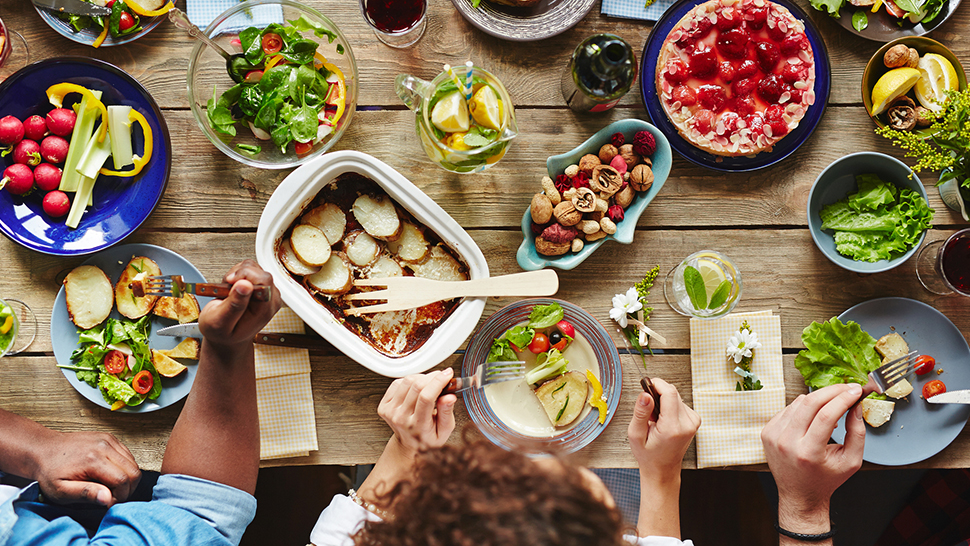I’ve been noticing some criticism of food rules. Can self-imposed restrictions actually be a problem?

In today’s diet-obsessed society, people who follow self-prescribed restrictive diets are no longer seen as odd. Food “rules” come in many flavors, from “eat this, not that” to not eating after 6pm or eating sweets only on certain days. Whether they are rules left over from various diets you’ve followed or longstanding habits from childhood, food rules can become so ingrained in your daily life that you may not even realize you follow them.
For some people, following some basic eating rules can be helpful with learning and instilling new behaviors that promote health; for example, aiming to consume a fruit or vegetable at every meal (if your diet typically lacks produce) or only drinking coffee before noon (because it seems to affect your sleep). But for others, food rules can become overly restrictive and lead to more harm than good.
So, how do you know if your rules are harmless habits — or if you should ease up a little?
It’s really about the why behind your food choices. For example, if you eat a salad every day for lunch, is it because you really love salads, or is it because that’s what a diet rule told you that’s what you should eat? To help you decipher whether a food rule is helping or hindering you, here are a few questions to ask yourself:
- Are my rules affecting my social life? For example, if you don’t allow yourself to dine out during the week or only allow desserts on a weekend, but your friends want to go out on a Tuesday night for ice cream, you might miss out on valuable time with friends or family, and emotional or social well-being can suffer.
- Do I avoid eating when I’m hungry because it’s outside of my designated mealtime? This can actually lead to overeating later at your next meal as well as reduced concentration and fatigue. Your body knows what you need better than any diet plan or rule does — listening to hunger and fullness cues is an important part of overall health.
- Do I avoid certain foods altogether even if I really enjoy that food (outside of a food allergy, sensitivity, or true dislike of the food)? This can lead to intense cravings and subsequent binges.
- Is it a tradition or a rigid rule? Meatless Mondays, Taco Tuesdays, Pizza Fridays (that’s a thing, right?) — these are all fun traditions that can help with meal planning and often lead to healthier dining at home. But rules becoming so specific that you don’t allow yourself flexibility (like having pizza on a Sunday if the mood strikes) can lead to stress around food, which is not healthy.
To summarize, some food rules are not necessarily bad. While it might sound like a delicious idea to eat chocolate cake for breakfast daily, many of us have firsthand knowledge that eating too many sweets isn’t the ticket to feeling well and having a productive day. But instead of creating rigid rules controlling when it’s OK to eat chocolate cake, learn to tune into your knowledge of what foods make you feel your best. We bet you’ll reach for something more nutritious most of the time. Pinpointing your own personal food rules can lessen stress around eating, create more flexibility and freedom around food, and ultimately lead to healthier lives.
At Bon Appétit, we know there’s a lot on your plate that you worry about. That’s why we have a team of registered dietitian nutritionists ready to answer your nutrition questions about which food choices will help you avoid unwanted pounds, work or study (and sleep!) better, and form long-lasting healthy eating habits. Email your questions and feedback to nutrition@cafebonappetit.com.